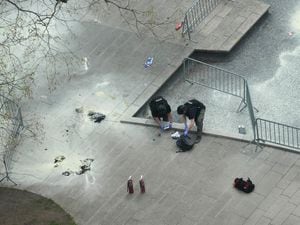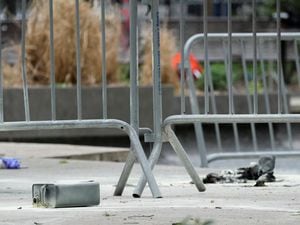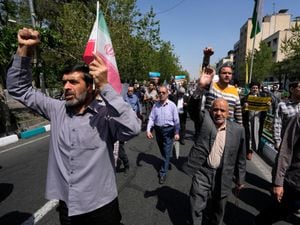Israel’s plans for Jerusalem cable car anger architects and Palestinians
The development would provide access to the Old City for tourists.
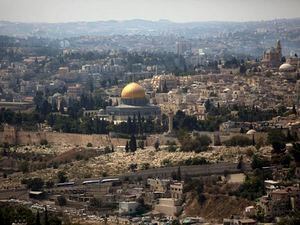
An Israeli plan to build a cable car to Jerusalem’s historic Old City has united architects and Palestinian activists in opposition to a project they say is both an eyesore and a ploy to entrench Israeli control over the city’s contested eastern sector.
Developers say the proposed project is meant to relieve snarling traffic and will ferry some 3,000 tourists an hour from the western sector directly to the Old City, in east Jerusalem.
It follows a series of Israeli projects in the holy city that have enraged the Palestinians.
Further complicating matters is the project’s association with the Elad Foundation, a group that has settled Jewish nationalists in the heart of Jerusalem’s Arab neighbourhoods.
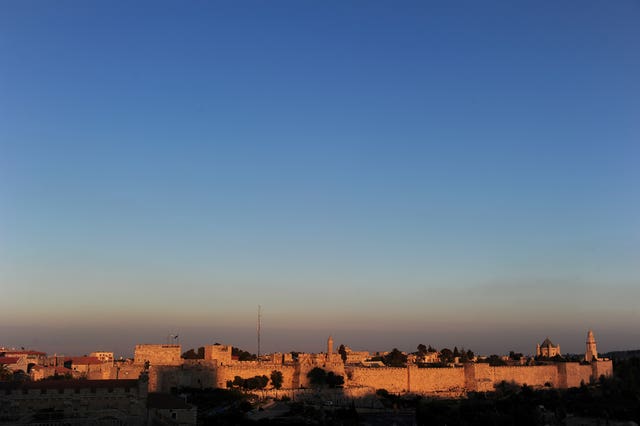
The final cable car station will be integrated into a future tourist centre run by the organisation.
“The cable car will send oblivious tourists flying over the heads of Palestinians and drop them off in the middle of occupied east Jerusalem, the eye of the storm, the …. centre of the Israeli-Palestinian conflict,” said Betty Herschman of Ir Amim, an advocacy group that promotes equality in the city.
“This cable car is putting new facts on the ground that undermine any possibility for a peace process.”
Israel captured east Jerusalem, along with the limestone-walled Old City, in the 1967 Mideast war and later annexed it, a move never recognised internationally.
The Palestinians claim the eastern sector as capital of a future state while Israel considers the entire city its eternal, undivided capital.

The conflicting claims to east Jerusalem lie at the heart of the Israeli-Palestinian conflict and have frequently spilled over into violence.
In recent years, Israel has carried out a series of initiatives, billed as development projects, that have infuriated the Palestinians.
Israel built a light rail train through both parts of the city, abutting the Old City and snaking through predominantly Arab neighbourhoods.
The train is popular with Arabs and Jews, but it has also been the target of Palestinian rioters when tensions rise.
Another proposed plan involves digging a railway tunnel under Jerusalem’s Old City, passing near sites holy to Jews, Christians and Muslims.
The proposed line would end at the Western Wall, with a station named after President Donald Trump, who is applauded in Israel for having recognised Jerusalem as its capital.
Beyond political opposition, the cable car has faced an outcry from urban planners and architects.
“This project is an outrage, an affront to our historic skyline,” said Moshe Safdie, a renowned architect who signed a petition against the plan along with 70 Israeli figures from architecture, archaeology and academia.
“This will Disneyfy a sacred place. Imagine a huge cable car flying over the Vatican and dumping tourists in front of St Peter’s. It’s unprecedented.”
No image says Jerusalem like the postcard view of its Old City, with its towering ancient walls, the Western Wall and the glimmering gold-topped Dome of the Rock.
The cable car would run nearly one mile, launching from the First Station, a popular food and cultural centre in west Jerusalem, sailing over the city’s ancient valley, stopping at Mount Zion, a hill just outside the Old City walls, and proceeding through the Palestinian neighbourhood of Silwan before alighting at the tourist centre.
Aber Zayyad, a Palestinian resident of Silwan and director of its women’s community centre, said she fears the cable car flying overhead will infringe on residents’ privacy and that its construction may harm houses and a local cemetery.
“Our tombs will likely be damaged, not to mention our lives,” she said.
“And of course it will further attempts to make Jerusalem a solely Jewish city.”
“We believe that this is an attempt to change the character of the city and its face … its culture and identity,” said Adnan Husseini, the Palestinian minister of Jerusalem Affairs.


